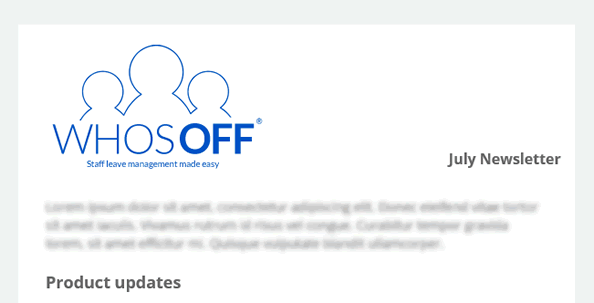Companies are always looking out for new ways to attract and incentivise staff, and these perks don’t always have to be connected to salary. In the past few years we’ve seen a growing trend towards businesses giving their staff more paid leave – and some have even started offering unlimited holiday.
Among the big brand names that have adopted a ‘limitless leave’ policy is Netflix, which has been operating this model since 2005, and Virgin, which made the move in 2014, along with organisations like HubSpot, LinkedIn and Glassdoor. Should your company be heading in the same direction? It’s important to carefully consider the consequences before making a final decision…
What is unlimited holiday – and how does it work?
While most countries have a minimum annual leave requirement for permanent employees, the maximum number of days that each member of staff can take is at the discretion of their employer. Some companies are now choosing to remove these maximum limits, so staff can effectively take as many days off as they want.
Businesses that already offer unlimited holiday have approached their new-found freedom in a number of ways. Some dispense with recording and tracking leave altogether; employees just let their relevant colleagues know when they’re going to be off. Others have basic expectations – for example, HubSpot makes it clear that all employees must take at least two weeks off each year – and then staff can log as much additional paid leave as they want.
What are the benefits of offering unlimited holiday?
There are a number of reasons that companies choose to adopt a limitless leave policy, including:
- Higher staff morale; valued team members are boosted by the thought that they can take time off whenever they like
- Greater productivity; if an employee is feeling tired or burned out, they can take a day off to recharge their batteries. Nobody is sitting at their desk for protocol’s sake
- Flexible approach to working; removing the maximum leave entitlement means staff can work their job around their life, which is particularly helpful to people with family commitments
- More attractive to potential employees; the better the incentive package, the higher the calibre of candidate. The increased flexibility that comes with unlimited holiday will also appeal to potential employees who might not have otherwise considered the role due to their life set-up or personal commitments
- Declaration of trust; employees’ sense of value is boosted by the thought that their employer has faith in them to get their job done whilst taking as much leave as they want, rather than abusing the system for their own gain
- Harder working; some companies shy away from offering unlimited leave because they think staff will take too much time off, but some companies have found that removing limits means staff take fewer holidays than when they had a set entitlement
- No carry-over to calculate; if staff no longer have a set number of days’ leave, there is no need to carry holiday over from one year to the next – saving your HR staff the task of transferring remaining allocations
Are there any challenges or downsides?
No incentive scheme is faultless, and there are some important things you need to consider before making the leap to limitless annual leave. For example:
- Setting expectations; although many businesses have not experienced issues, realistically you don’t want your employees to spend more time on holiday than in the office, so you may need to give them a framework for their expected availability and timelines for approving leave
- Creating a positive holiday culture; by removing the guidelines, some staff may feel subconscious pressure not to be off ‘too often’ in the eyes of their colleagues. You also have a duty of care to make sure all employees are taking their minimum holiday entitlement – Kickstarter actually axed its unlimited holiday policy because it felt staff members weren’t taking enough time off
- Preventing calendar clashes; while it would be nice to let staff come and go as they please, key members of the team being off at the same time can create serious problems, so you need to manage leave arrangements closely and provide guidelines on how many team members can be off at any one time
- Tracking who’s off – and who’s in; with employees more available to take time off, it can become difficult to know who is in the office at any given time. It’s important to factor in not just who is on annual leave, but who is off sick or out at an external meeting as well, so you can schedule workload appropriately
- Calculating sick pay and payment in lieu; while unlimited holiday overcomes the challenge of carrying over unused leave, there are still logistical challenges you will face. For example, staff on long-term sick leave or maternity leave still accrue holiday as usual, which becomes difficult to calculate if there is no upper limit. Equally, if a member of the team leaves the company mid-way through the holiday year, it is difficult to determine payment in lieu for any days not taken
- No loyalty incentives; many companies like to reward long-term members of staff with extra paid leave days for each year of service or a bonus week off after a certain length of time. Removing holiday limits means these rewards can no longer be applied, and long-serving team members may feel resentful that the playing field has now been levelled
Should you offer employees unlimited leave – and how can you ensure its success?
Ultimately, only you can make the decision as to whether an unlimited holiday policy is right for your business. You may wish to trial it for a year and see the impact it has on work performance and profitability, before committing to it long-term.
If you decide to embark on a limitless leave trial, the most important thing to ensure is that staff movements are managed effectively. The only way to maintain structure with a flexible holiday policy is to have an efficient, accurate method for recording who’s off at any point in time, and make sure everyone in the company has visibility of this document.
WhosOff makes leave management simple by enabling all holiday requests to be automatically processed and recorded on a central online dashboard. Try WhosOff for free to see how we can help your business improve the way you manage staff holiday.
Photo by Anugrah Lohiya from Pexels

